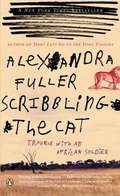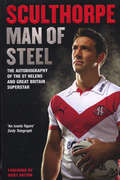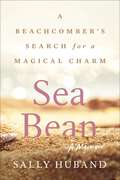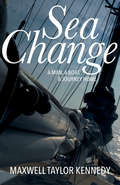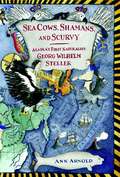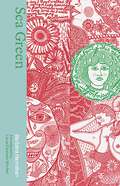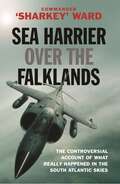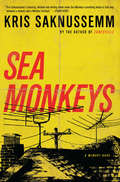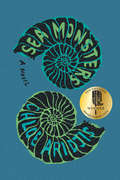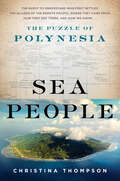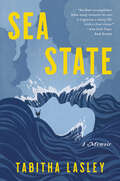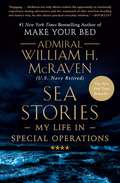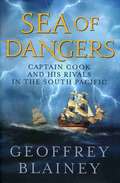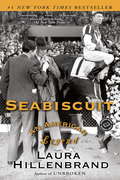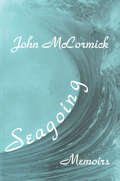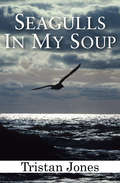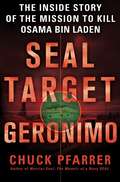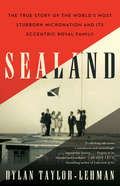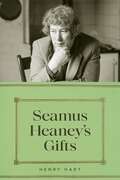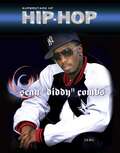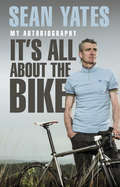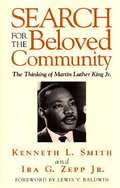- Table View
- List View
Scribbling the Cat
by Alexandra FullerWhen Alexandra ("Bo") Fuller was home in Zambia a few years ago, visiting her parents for Christmas, she asked her father about a nearby banana farmer who was known for being a "tough bugger." Her father's response was a warning to steer clear of him; he told Bo: "Curiosity scribbled the cat." Nonetheless, Fuller began her strange friendship with the man she calls K, a white African and veteran of the Rhodesian war. With the same fiercely beautiful prose that won her acclaim for Don't Let's Go to the Dogs Tonight, Fuller here recounts her friendship with K.K is, seemingly, a man of contradictions: tattooed, battle scarred, and weathered by farm work, he is a lion of a man, feral and bulletproof. Yet he is also a born-again Christian, given to weeping when he recollects his failed romantic life, and more than anything else welling up inside with memories of battle. For his war, like all wars, was a brutal one, marked by racial strife, jungle battles, unimaginable tortures, and the murdering of innocent civilians--and K, like all the veterans of the war, has blood on his hands.Driven by K's memories, Fuller and K decide to enter the heart of darkness in the most literal way--by traveling from Zambia through Zimbabwe (formerly Rhodesia) and Mozambique to visit the scenes of the war and to meet other veterans. It is a strange journey into the past, one marked at once by somber reflections and odd humor and featuring characters such as Mapenga, a fellow veteran who lives with his pet lion on a little island in the middle of a lake and is known to cope with his personal demons by refusing to speak for days on end. What results from Fuller's journey is a remarkably unbiased and unsentimental glimpse of men who have killed, mutilated, tortured, and scrambled to survive during wartime and who now must attempt to live with their past and live past their sins. In these men, too, we get a glimpse of life in Africa, a land that besets its creatures with pests, plagues, and natural disasters, making the people there at once more hardened and more vulnerable than elsewhere.Scribbling the Cat is an engrossing and haunting look at war, Africa, and the lines of sanity.
Sculthorpe: Man of Steel
by Paul SculthorpePAUL SCULTHORPE is the man who was born to be a superstar. Touted as a future Great Britain skipper before he even played his first game as a professional, he has more than lived up to the billing over the ensuing years.The only player to ever be named Man of Steel in successive years, the St Helens captain is arguably the most talented man to grace a rugby league field in modern times. Yet Sculthorpe did not always have his sights set on Challenge Cup and Grand Final glory. As a youngster he spent his time booting a football around with brother Lee - and actually had to be forced into playing his first game of rugby.From that moment a star was born, as he went on to captain every side he represented, even though he was often playing a year above his age group.Warrington were the first to spot that potential, snapping him up on schoolboy terms, and helping shape the greatest player in Super League history. When he went hunting a bigger stage, St Helens had no hesitation paying a world record £370,000 - a transfer fee that quickly looked a bargain.Since then various rugby union clubs have sounded out the chances of tempting him into a code switch, while the biggest names in Australia would love to take the prize Pom Down Under.Throughout it all Scully has stayed true to his roots, even though that loyalty was sorely tested when knee injuries led to a whispering campaign that he was finished.Now Sculthorpe lifts the lid on a remarkable career. The highs and the lows; the friendships and the fall-outs; and where he feels his future REALLY lies. It's a no-holds barred account of one man's incredible rise to the top - and the steely determination which keeps him there.
Se-Quo-Yah
by George Everett FosterPublished in 1885, this is the biography of famed Cherokee Indian, Se-Quo-Yah, the inventor of the Cherokee alphabet.
Sea Bean: A Beachcomber's Search for a Magical Charm—A Memoir
by Sally Huband“Sea Bean is a coastal treasure. Its hard-won attentiveness shows the wonder and vulnerability of our interconnected oceans, wildlife, and people. In Sally's writing, beachcombing—an old island pursuit—is modern, revealing and restorative. The next time I am at the shore I will have a deeper appreciation and curiosity."—Amy Liptrot, author of The Outrun and The InstantA Waterstones Nature and Travel Best Book of 2023Winner of the Highlands Book Prize 2023Longlisted for the Wainwright Nature PrizeA powerful journey of sea and self, trial and hope on the islands of Shetland, where climate change is making marked impacts on the natural world.When a seed falls from a vine in the tropics and is carried by ocean currents across the Atlantic to the shores of Western Europe, it is known as a sea bean. It’s long been lucky to find a sea bean upon the shore; these seeds have been collected and used as magical charms for more than a thousand years.Sally Huband's search for the elusive sea bean begins shortly after she moves to the windswept archipelago of Shetland, the northernmost region of Great Britain, situated between the Atlantic Ocean and the North Sea. When pregnancy triggers a chronic illness and forces her to slow down, Sally turns to the beaches for solace and wellbeing. There, she discovers treasure freighted with story and curiosities that connect her to the world.The wild shores of Shetland offer glimpses of orcas swimming through the ocean at dusk, the chance to release a tiny storm petrel into the dark of the night, and a path of hope. This beachcombing path takes her from the Faroese archipelago to the Orkney islands, and the Dutch island of Texel. It opens a world of ancient myths, fragile ecology, and deep human history. It brings her to herself again.Sea Bean is a like a message in a bottle. It reveals the interconnection of our oceans, our communities, and ourselves, and offers both comfort and an invitation to feel belonging when we are adrift.
Sea Change: A Man, A Boat, A Journey Home
by Maxwell Taylor KennedyIn this fast-paced and rollicking book, author Maxwell Taylor Kennedy takes readers on a wild ride as he relates the harrowing voyage to deliver his boat, Valkyrien, a 90-foot dilapidated wooden schooner, from San Francisco to Washington, DC. From day one, Kennedy and his skeleton crew face almost insurmountable odds and personal danger in their quest to make the crossing. Rich in nautical detail and humor, Kennedy recounts his adventure—its pleasures and perils—as he encounters never-ending technical problems and a hilarious cast of characters. As everything goes wrong and trouble and losses mount, Kennedy must rely on instinct and a lifetime of sailing experience to endure. He is steered by the love of his family, his respect for the sea, and his admiration for those who dare to venture far from shore.
Sea Cows, Shamans, And Scurvy: Alaska's First Naturalist: Georg Wilherm Steller
by Ann Arnold<P>On June 4, 1741, Georg Wilhelm Steller set sail from Avacha Bay in Siberia on the St. Peter, under the command of Vitus Bering. The crew was bound for America on the last leg of an expedition whose mission was to explore, describe, and map Russia’s vast lands from the Ural Mountains across Siberia to the Kamchatka Peninsula, and possibly lay claim to the northwest coast of America – if they could find it, for no European had ever reached America by this route. <P> Officially, Steller was the ship’s mineralogist, but in practice he was its doctor, minister, and naturalist as well. Appointed to the expedition in 1737 by the Academy of Science in St. Petersburg, he was sworn to secrecy concerning any discoveries. <P>Making judicious use of Steller’s richly detailed journals and liberal use of illustrations and maps, Ann Arnold allows the reader to join Steller on this fascinating voyage and its final dangerous mission, which left half the crew dead and the rest suffering from scurvy.
Sea Dangers: The Affair of the Somers
by Philip MacfarlandSet in the 1840s, the true story of a suspected mutiny on the brig Somers where 3 men were hanged, including the son of the Secretary of War.
Sea Green
by Barbara HanrahanA stunning and unforgettable novel about the pursuit of a creative and independent life, Barbara Hanrahan&’s Sea Green is an Australian feminist classic. With a new introduction from Laura Elizabeth Woollett. Virginia is on a ship bound for London, lured by her creative dreams, leaving behind her weeping mother and father in Adelaide. On the cocoon-like journey she is struck by the messiness of relationships and her uncontrollable body. But things on the other side of the world are no neater, as she is pulled between her conservative expectations and her magnetic internal life. In innovative poetic prose, artist and author Barbara Hanrahan plunges us into the possibility-filled London of her youth while reflecting the all-but-unchanged experience of finding independence as a creative woman. Originally published in 1974, Sea Green was inspired by Hanrahan&’s experiences, but has a life and immediacy all its own. This jewel-like new edition, featuring an introduction from Stella Prize–longlisted author Laura Elizabeth Woollett and Hanrahan&’s own distinctive artwork, re-establishes Sea Green&’s place in hearts and minds. &‘An artistic coming-of-age novel like no other. Barbara Hanrahan is as wonderfully idiosyncratic a writer as she is as a visual artist, her prose both extravagant and frank. I hope this book will be remembered as a modern classic.&’ – Laura Elizabeth Woollett
Sea Harrier Over The Falklands (W&N Military)
by Commander Sharkey WardThe controversial first-hand account of what really happened in the south Atlantic skiesSharkey Ward commanded 801 Naval Air Squadron, HMS Invincible, was senior Sea Harrier adviser to the Command, flew over sixty missions and was awarded DSC. Yet had he followed all his instructions to the letter, Britain might well have lost the Falklands War.His dramatic first-hand story of the air war in the South Atlantic is also an extraordinary, outspoken account of inter-Service rivalries, bureaucratic interference, and dangerous ignorance of the realities of air combat among many senior commanders. As Sharkey Ward reveals, the 801 pilots were fighting not just the enemy, exhaustion, and the hostile weather, but also the prejudice and ignorance of their own side.
Sea Harrier Over The Falklands (W&N Military)
by Commander Sharkey WardThe controversial first-hand account of what really happened in the south Atlantic skiesSharkey Ward commanded 801 Naval Air Squadron, HMS Invincible, was senior Sea Harrier adviser to the Command, flew over sixty missions and was awarded DSC. Yet had he followed all his instructions to the letter, Britain might well have lost the Falklands War.His dramatic first-hand story of the air war in the South Atlantic is also an extraordinary, outspoken account of inter-Service rivalries, bureaucratic interference, and dangerous ignorance of the realities of air combat among many senior commanders. As Sharkey Ward reveals, the 801 pilots were fighting not just the enemy, exhaustion, and the hostile weather, but also the prejudice and ignorance of their own side.
Sea Monkeys: A Memory Book
by Kris SaknussemmBowling lessons with a hunchback. A bizarre first-grade teacher who hallucinates in class. A tragically innocent family blind-sided by flower power, and the salvation of soul music at a radio station straight out of a Quentin Tarantino version of The Twilight Zone. These are just a few of the luminous characters and conjurings Kris Saknussemm delivers in his kaleidoscopic Sea Monkeys-the story of his growing up in the counterculture San Francisco Bay Area and central California in the 1960s.Known for his genre-bending works Zanesville and Private Midnight, Saknussemm now gives us a highly original take on the nonfiction memoir, in which he shatters the stained glass windows of his father's church and mixes the pieces with ghost cartoons, the Cronkite contradictions of Civil Rights demonstrations, and ads for laxatives during a strange hiatus in American sanity when Sly Stone and Perry Como could both be in the Top 10. Honest, funny, and at times heartbreaking, Sea Monkeys is the no-holds-barred tale of one of our most exciting contemporary authors' own coming of age, and the perfect follow-up to Saknussemm's Zanesville, which Booklist hailed as "one of the most creative, edgy, and entertaining novels spawned in a decade."
Sea Monsters: A Novel
by Chloe AridjisWinner of the 2020 PEN/Faulkner Award for Fiction, this intoxicating story of a teenage girl who trades her a middle–class upbringing for a quest for meaning in 1980s Mexico is “a surreal, captivating tale about the power of a youthful imagination, the lure of teenage transgression, and its inevitable disappointments” (Los Angeles Review of Books)One autumn afternoon in Mexico City, seventeen–year–old Luisa does not return home from school. Instead, she boards a bus to the Pacific coast with Tomás, a boy she barely knows. He seems to represent everything her life is lacking―recklessness, impulse, independence.Tomás may also help Luisa fulfill an unusual obsession: she wants to track down a traveling troupe of Ukrainian dwarfs. According to newspaper reports, the dwarfs recently escaped a Soviet circus touring Mexico. The imagined fates of these performers fill Luisa’s surreal dreams as she settles in a beach community in Oaxaca. Surrounded by hippies, nudists, beachcombers, and eccentric storytellers, Luisa searches for someone, anyone, who will “promise, no matter what, to remain a mystery.” It is a quest more easily envisioned than accomplished. As she wanders the shoreline and visits the local bar, Luisa begins to disappear dangerously into the lives of strangers on Zipolite, the “Beach of the Dead.”Meanwhile, her father has set out to find his missing daughter. A mesmeric portrait of transgression and disenchantment unfolds. Set to a pulsing soundtrack of Joy Division, Nick Cave, and Siouxsie and the Banshees, Sea Monsters is a brilliantly playful and supple novel about the moments and mysteries that shape us."Aridjis is deft at conjuring the teenage swooniness that apprehends meaning below every surface. Like Sebald’s or Cusk’s, her haunted writing patrols its own omissions . . . The figure of the shipwreck looms large for Aridjis. It becomes a useful lens through which to see this book, which is self–contained, inscrutable, and weirdly captivating, like a salvaged object that wants to return to the sea." ―Katy Waldman, The New Yorker
Sea People: The Puzzle of Polynesia
by Christina ThompsonA blend of Jared Diamond’s Guns, Germs, and Steel and Simon Winchester’s Pacific, a thrilling intellectual detective story that looks deep into the past to uncover who first settled the islands of the remote Pacific, where they came from, how they got there, and how we know. For more than a millennium, Polynesians have occupied the remotest islands in the Pacific Ocean, a vast triangle stretching from Hawaii to New Zealand to Easter Island. Until the arrival of European explorers they were the only people to have ever lived there. Both the most closely related and the most widely dispersed people in the world before the era of mass migration, Polynesians can trace their roots to a group of epic voyagers who ventured out into the unknown in one of the greatest adventures in human history. How did the earliest Polynesians find and colonize these far-flung islands? How did a people without writing or metal tools conquer the largest ocean in the world? This conundrum, which came to be known as the Problem of Polynesian Origins, emerged in the eighteenth century as one of the great geographical mysteries of mankind.For Christina Thompson, this mystery is personal: her Maori husband and their sons descend directly from these ancient navigators. In Sea People, Thompson explores the fascinating story of these ancestors, as well as those of the many sailors, linguists, archaeologists, folklorists, biologists, and geographers who have puzzled over this history for three hundred years. A masterful mix of history, geography, anthropology, and the science of navigation, Sea People combines the thrill of exploration with the drama of discovery in a vivid tour of one of the most captivating regions in the world.Sea People includes an 8-page photo insert, illustrations throughout, and 2 endpaper maps.
Sea State: A Memoir
by Tabitha LasleyA Recommended Read from: Vogue * The Los Angeles Times * Publishers Weekly * The Week * Lit HubA stunning and brutally honest memoir that shines a light on what happens when female desire conflicts with a culture of masculinity in crisisIn her midthirties and newly free from a terrible relationship, Tabitha Lasley quit her job at a London magazine, packed her bags, and poured her savings into a six-month lease on an apartment in Aberdeen, Scotland. She decided to make good on a long-deferred idea for a book about oil rigs and the men who work on them. Why oil rigs? She wanted to see what men were like with no women around.In Aberdeen, Tabitha became deeply entrenched in the world of roughnecks, a teeming subculture rich with brawls, hard labor, and competition. The longer she stayed, the more she found her presence had a destabilizing effect on the men—and her.Sea State is on the one hand a portrait of an overlooked industry: “offshore” is a way of life for generations of primarily working-class men and also a potent metaphor for those parts of life we keep at bay—class, masculinity, the transactions of desire, and the awful slipperiness of a ladder that could, if we tried hard enough, lead us to security.Sea State is on the other hand the story of a journalist whose professional distance from her subject becomes perilously thin. In Aberdeen, Tabitha gets high and dances with abandon, reliving her youth, when the music was good and the boys were bad. Twenty years on, there is Caden: a married rig worker who spends three weeks on and three weeks off. Alone and in an increasingly precarious state, Tabitha dives into their growing attraction. The relationship, reckless and explosive, will lay them both bare.
Sea Stories: My Life in Special Operations
by Admiral William H. McRavenFollowing the success of his #1 New York Times bestseller Make Your Bed, which has sold over one million copies, Admiral William H. McRaven is back with amazing stories of bravery and heroism during his career as a Navy SEAL and commander of America's Special Operations Forces.Admiral William H. McRaven is a part of American military history, having been involved in some of the most famous missions in recent memory, including the capture of Saddam Hussein, the rescue of Captain Richard Phillips, and the raid to kill Osama bin Laden.Sea Stories begins in 1963 at a French Officers' Club in France, where Allied officers and their wives gathered to have drinks and tell stories about their adventures during World War II-the place where a young Bill McRaven learned the value of a good story. Sea Stories is an unforgettable look back on one man's incredible life, from childhood days sneaking into high-security military sites to a day job of hunting terrorists and rescuing hostages.Action-packed, humorous, and full of valuable life lessons like those exemplified in McRaven's bestselling Make Your Bed, Sea Stories is a remarkable memoir from one of America's most accomplished leaders.
Sea of Dangers: Captain Cook and His Rivals in the South Pacific
by Geoffrey BlaineyIn 1769 two ships set out independently in search of a missing continent: a French merchant ship, the St. Jean-Baptiste, commanded by Jean de Surville, and a small British naval vessel, the Endeavour, commanded by Captain James Cook. That Christmas, in New Zealand waters, the two captains were almost within sight of each other, though neither knew of the other's existence. This is the stirring tale of these rival ships and the men who sailed in them.
Seabiscuit: An American Legend
by Laura HillenbrandLaura Hillenbrand, author of the runaway phenomenon Unbroken, brilliantly re-creates a universal underdog story in this #1 New York Times bestseller.BONUS: This edition contains a Seabiscuit discussion guide and an excerpt from Unbroken.Seabiscuit was one of the most electrifying and popular attractions in sports history and the single biggest newsmaker in the world in 1938, receiving more coverage than FDR, Hitler, or Mussolini. But his success was a surprise to the racing establishment, which had written off the crooked-legged racehorse with the sad tail. Three men changed Seabiscuit’s fortunes: Charles Howard was a onetime bicycle repairman who introduced the automobile to the western United States and became an overnight millionaire. When he needed a trainer for his new racehorses, he hired Tom Smith, a mysterious mustang breaker from the Colorado plains. Smith urged Howard to buy Seabiscuit for a bargain-basement price, then hired as his jockey Red Pollard, a failed boxer who was blind in one eye, half-crippled, and prone to quoting passages from Ralph Waldo Emerson. Over four years, these unlikely partners survived a phenomenal run of bad fortune, conspiracy, and severe injury to transform Seabiscuit from a neurotic, pathologically indolent also-ran into an American sports icon.
Seagoing: Essay-memoirs
by Jhon McCormick"The great virtue of McCormick's memoirs is their blunt honesty. He writes with a persuasive directness about what happened to him and what he believes..."--Arts and LettersThe title of John McCormick's autobiographical book, may be taken both literally and symbolically. In a literal sense, going to sea was an early and powerful ambition, while seagoing is also a metaphor for the twists and turns in a rootless life, a long voyaging. This is not a conventional autobiography. It is personal only as necessary for continuity, and never confessional. The essays center upon telling episodes in the author's life and strive for objectivity and accuracy about the recent past, both personal and historical. He does so, as he writes, without "any pretension of producing a true history." The events of his life are necessarily unique to him, thus he finds uniqueness in the events that impinged upon him. McCormick begins with his early years, growing up in the American mid-West during the Depression, a time of broken family relations and random jobs. He relates his falling away from religious faith. He describes his first experience as a sailor in a tanker, which gave him physical liberation, a world free of constrictions, as with Hemingway. In discussing his early teaching experience, he gives a vivid portrayal of Germany in the immediate postwar years, along with observations of residual pro-Hitler sentiment and the awkward circumstances (for Germans) of the immediate past. He devotes a chapter to a moving memoir of his friend Francis Fergusson, eminent Rutgers University scholar. McCormick also relates his experience as an amateur bullfighter and reiterates his defense of bullfighting as an art. He paints a vivid picture of an adventure at sea while working on a definitive biography of George Santayana, reflecting also on changes in the genre of biography, with its prevailing emphasis on trivia and sensationalism. In describing his retirement to England, McCormick describes the conflict between nationalism and expatriation. He punctuates details of his naval war experiences with thoughtful observations on military combat. Finally, in his closing chapter, "Coda: Closet Space," McCormick attempts to make sense of old age and death. This autobiographical account of a well-lived life encompasses far more than a splendid teaching and literary career. It will provide insight and good reading for those who know McCormick's scholarly work, for students of the humanities, and for the general public interested in vivid prose. John McCormick is professor emeritus of comparative literature at Rutgers University, and honorary fellow of English and literature at the University of York. He is the author of George Santayana: A Biography, Catastrophe and Imagination, The Middle Distance, and Fiction as Knowledge.
Seagulls in My Soup: Further Adventures Of A Wayward Sailor (Sheridan House Ser.)
by Tristan JonesJoin Tristan Jones as he tells tales of the humorous and fascinating adventures that his Saga of a Wayward Sailor began. Discover more anecdotes and unexpected adventures aboard a converted lifeboat ketch cruising the coasts of the Balearic region with Tristan, his one-eyed, three-legged dog, Nelson and the prim Bishop's sister, Sissie St. John. It's a prolific prose journey of surprising arrivals, machine gun-thwarting and ship-saving escapades of a wayward sailor and his motley crew.
Seal Target Geronimo: The Inside Story of the Mission to Kill Osama Bin Laden
by Chuck PfarrerOn May 2, 2011, at 1:03 a.m. in Pakistan, a satellite uplink was sent from the town of Abbottabad crackling into the situation room of the White House in Washington, D.C.: "Geronimo, Echo, KIA." These words, spoken by a Navy SEAL, put paid to Osama bin Laden's three-decade-long career of terror. For ten years following 9/11, Bin Laden was the object of the most intense manhunt in modern history. This reclusive Saudi millionaire bankrolled a handpicked gang of jihadists who were determined to replace the governments of the world with a centralized Islamic regime. He ruled over a multifaceted empire of terror whose fanatics truck-bombed, hijacked, and murdered a bloody swath across four continents, killing men, women, and children. Three U. S. presidents vowed to bring him to justice. Intelligence organizations from a dozen nations sent agents after him. Finally, Osama bin Laden, the man who would have remade the world, was brought to bay--shot down as he cowered behind one of his own family members--by special warfare operators from the U. S. Navy's ultrasecret SEAL Team Six. SEAL Target Geronimo is the story of Bin Laden's relentless hunters and how they took down the terrorist mastermind, told by Chuck Pfarrer, a former assault element commander of SEAL Team Six and author of the bestselling Warrior Soul: The Memoir of a Navy SEAL. After talking to members of the SEAL team involved in the raid, Pfarrer shares never-before-revealed details of the historic raid and the men who planned and conducted it in an exclusive boots-on-the-ground account of what happened during each minute of the mission--both inside the building and outside. Pfarrer takes readers inside the operation as the SEAL's flew over the wall of Bin Laden's shabby, litter-strewn compound and then penetrated deeper and deeper into the terrorist's lair, telling us just what it looked, sounded, and smelled like in that sweltering Pakistani suburb. He takes us out to the courtyard to witness the near-disaster of the malfunctioning helicopter and brings us to the exact spot where the al-Qaeda leader was cowering when the bullet entered his head. SEAL Target Geronimo is an explosive story of unparalleled valor, clockwork military precision, and deadly accuracy carried out by the most elite fighting force in the world--the U.S. Navy's SEAL Team Six.
Sealand: The True Story of the World's Most Stubborn Micronation and Its Eccentric Royal Family
by Dylan Taylor-LehmanA &“thoroughly researched, stranger-than-fiction&” history of the world&’s tiniest rebel nation, filled with intrigue, armed battles, and radio pirates (Robert Jobson, author of Prince Philip&’s Century). In 1967, a retired army major and self-made millionaire named Paddy Roy Bates cemented his family&’s place in history when he inaugurated himself ruler of the Principality of Sealand, a tiny dominion of the high seas. And so began the peculiar story of the world&’s most stubborn micronation on a World War II anti-aircraft gun platform off the British coast. Sealand is the raucous tale of how a rogue adventurer seized the disused Maunsell Sea Fort from pirate radio broadcasters, settled his eccentric family on it, and defended their tiny kingdom from UK government officials and armed mercenaries for half a century. Incorporating original interviews with surviving Sealand royals, Dylan Taylor-Lehman recounts the battles and schemes as Roy and his crew engaged with diplomats, entertained purveyors of pirate radio and TV, and even thwarted an attempted coup that saw the Prince Regent taken hostage. Incredibly, more than fifty years later, the self-proclaimed independent nation still stands—replete with its own constitution, national flag and anthem, currency, and passports. Featuring rare vintage photographs of the Bates clan and their unusual enterprises, this account of a dissident family and their outrageous attempt to build a sovereign kingdom on an isolated platform in shark-infested waters is the stuff of legend. &“Memorable . . . This idiosyncratic history entertains.&” ―Publishers Weekly &“Endlessly captivating, like a thriller, and filled with crisp, evocative writing. Now, you&’ll have to excuse me, I&’m visiting the principality to become an official &‘Lord of Sealand.&’&” ―Bob Batchelor, author of The Bourbon King
Seamus Heaney's Gifts
by Henry Hart“The fact of the matter,” Seamus Heaney said in a 1997 interview with the Paris Review, “is that the most unexpected and miraculous thing in my life was the arrival in it of poetry.” Throughout his career, Heaney, who received the 1995 Nobel Prize in Literature, maintained that poetry came to him from a mysterious source like a gift of grace. He also believed that the recipient of this sort of boon had an ethical obligation to share it with others. Seamus Heaney’s Gifts, by the noted scholar and poet Henry Hart, offers the first comprehensive examination of Heaney’s preoccupation with gifts and gift-exchange. Drawing on extensive research in Heaney’s papers, as well as three decades of correspondence with the poet, Hart presents a richly detailed study of Heaney’s life and work that foregrounds the Irishman’s commitment to the vocation of poetry as a public art to be shared with audiences and readers around the world. Heaney traced his devotion to gifts back to the actual present of a Conway Stewart fountain pen that his parents gave him at the age of twelve when he left his family farm in Northern Ireland to attend a private Catholic secondary school in Londonderry. He commemorated this gift in “Digging,” the first poem in his first book, and in two poems he wrote near the end of his life: “The Conway Stewart” and “On the Gift of a Fountain Pen.” Friends and doctors had warned him that his endless globetrotting to give lectures and poetry readings had damaged his health. Yet he felt obligated to share his talent with audiences around the world until his death in 2013. As Hart shows, Heaney found his first models for gift-giving in his rural community in Northern Ireland, the Bible, the rituals of the Catholic Church, and the literature of mystical and mythical quests. Blending careful research with evocative commentaries on the poet’s work, Seamus Heaney’s Gifts explains his ideas about the artist’s gift, the necessity of gift-exchange acts, and the moral responsibility to share one’s talents for the benefit of others.
Sean "Diddy" Combs (Superstars of Hip-Hop)
by Z. B. HillFew people are as successful in business and music as Sean Combs. Today, Combs (also known as Diddy) makes music fans love and still has time to succeed in business. Combs has even won an Academy Award for producing a movie. It seems there's nothing he can't do! Sean "Diddy" Combs is the story of how one boy from the projects grew up to be one of the most powerful men in hip-hop. Read about how Combs became a star in the 1990s. Learn about how important Combs has been to the history of hip-hop and how he's stayed successful over the years by trying new things.
Sean Yates: My Autobiography
by Sean YatesBefore Bradley Wiggins, there was Sean Yates. Behind Bradley Wiggins, there was Sean Yates.One of only five Britons to wear the yellow jersey in the Tour de France, Sean Yates burst onto the cycling scene as the rawest pure talent this country has ever seen. After turning professional at the age of 22, he soon became known as a die-hard domestique, putting his body on the line for his teammates. Devastatingly fast, powerful and a fearless competitor, Yates won a stage of the Tour, as well as the Vuelta a España, in 1988, and went on to don the coveted maillot jaune six years later.Having put British cycling on the map as a rider, Yates was soon in demand as a directeur sportif, using his tactical knowledge to inspire a new generation of cyclists to success. And after Team Sky came calling, Yates was the man to design the brilliant plan that saw Sky demolish the opposition in 2012, and for Bradley Wiggins to become the first cyclist from these shores to win the Tour.Straight-talking, entertaining and revelatory, It's All About the Bike is the story of a remarkable career told from the unique perspective of a man who is immersed in the history of the sport he loves.
Search For The Beloved Community: The Thinking Of Martin Luther King, Jr.
by Kenneth Smith Ira ZeppUpdated from the original version published in 1974, this book examines the thought of Martin Luther King, Jr. and the influences that shaped it. Kenneth L. Smith's firsthand knowledge of King's seminary studies provides the background for an incisive analysis of the influences of the Christian tradition.
